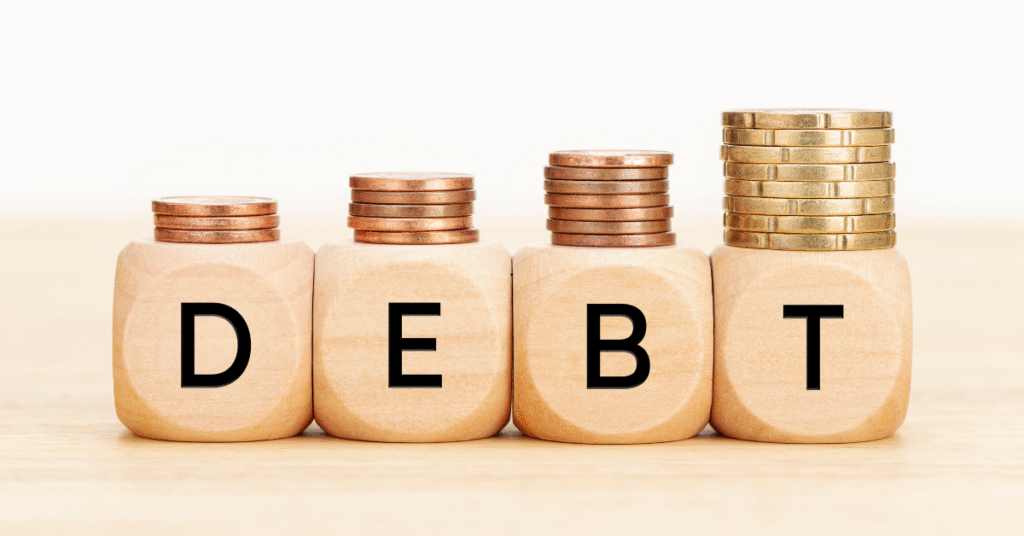15 Signs You Are Financially Stable

How many times have you laid awake at night wondering if you’re actually doing okay with money? Maybe you’ve got some cash in the bank, but does that mean you’re financially stable? Or are you just one unexpected car repair away from a financial meltdown?
Here’s the thing: financial stability isn’t about being rich or having a million dollars sitting in your savings account.
It’s about having your act together in ways that matter. It’s about sleeping soundly at night knowing you can handle whatever life throws at you.
I’m going to walk you through 15 clear signs that prove you’re financially stable. Some might surprise you, and others might make you realize you’re doing better than you thought. Let’s figure out where you stand, shall we?
What Is Financial Stability?
Before we jump into the signs, let’s clear up what financial stability actually means. Because honestly, a lot of people get this wrong.
Financial stability is when you’ve got a steady income coming in, enough money saved up for emergencies, and your debt isn’t keeping you up at night. It means you can pay your bills without stress, save for future goals, and still have a little left over to enjoy life.
Think of it like this: you’re not living paycheck to paycheck, you’re not constantly worried about money, and you’ve got a plan for your financial future. That’s the sweet spot we’re all aiming for.
Does Financial Stability Matter?
Uh, yeah. It matters a LOT.
Financial stability gives you something money can’t directly buy: peace of mind. When your finances are in order, you stop stressing about every little expense. You can actually plan for the future instead of just surviving the present.
Plus, being financially stable means you’ve got options. Want to switch careers? You can. Need to take time off for family? You’ve got the cushion. Unexpected medical bill? No problem. That kind of freedom is priceless.
15 Signs You Are Financially Stable
Alright, let’s get to the good stuff. Here are the 15 signs that show you’re crushing it financially. Check how many apply to you.
1. Sticking To A Budget

If you’ve got a budget and you actually stick to it, congratulations! You’re already ahead of most people. Seriously, creating a budget is easy. Following it? That’s where the magic happens.
A solid budget shows you exactly where your money goes each month. You’re tracking your income, your expenses, and making sure everything adds up. No surprises, no mystery spending, just clear control over your finances.
The best part? When you stick to your budget, you’re not just managing money. You’re making intentional decisions about what matters to you. That new streaming service might seem cheap, but if it’s not in the budget, you skip it. That’s discipline, and it’s one of the clearest signs you’re financially stable.
FYI, if you’re struggling with budgeting, start simple. Track everything you spend for one month. You’ll be shocked at where your money actually goes. Then build your budget around your real spending habits, not some ideal version of yourself.
2. Living Below Your Means
This one trips people up because they think living below your means equals being cheap. Nope. It means you spend less than you earn, period.
When you’re living below your means, you’re not trying to keep up with everyone else. Your neighbor gets a new car? Cool for them. You’re perfectly happy with your paid-off vehicle. Your coworker takes expensive vacations? Nice. You’re building your emergency fund.
Here’s what I’ve learned: the people who look rich often aren’t. They’re drowning in debt trying to maintain an image. Meanwhile, the truly financially stable folks are driving older cars, living in modest homes, and quietly building wealth.
Living below your means creates breathing room in your budget. That breathing room becomes savings, investments, and eventually, real financial freedom. It’s not about deprivation. It’s about priorities.
3. Being Able To Save Money Consistently

Can you save money every single month without fail? If yes, you’re showing one of the strongest signs of financial stability.
Consistent saving isn’t about the amount. Whether you’re putting away $50 or $500, what matters is the habit. You’re prioritizing your future self over instant gratification, and that takes real discipline.
I’m talking about automatic transfers to your savings account. Money that moves before you can spend it. You’ve probably heard the phrase “pay yourself first,” right? That’s exactly what consistent saving looks like in action.
The compound effect of regular saving is incredible. Small amounts add up faster than you think. A few years of consistent saving can completely transform your financial situation. Plus, knowing you’re building your savings every month gives you confidence and reduces money anxiety.
4. Paying Down Debt Successfully

Debt is like that annoying friend who overstays their welcome. The sooner you can show them the door, the better.
If you’re actively paying down debt and making real progress, that’s a huge sign you’re financially stable. You’re not just making minimum payments and hoping for the best. You’ve got a strategy, whether it’s the debt snowball, debt avalanche, or something else entirely.
Paying down debt requires sacrifice. You’re choosing to send extra money to creditors instead of spending it on fun stuff. That shows maturity and long-term thinking. Every payment brings you closer to freedom from those monthly obligations.
Here’s the reality: debt limits your options. It ties up your income in payments for things you’ve already bought. Getting rid of it opens up your cash flow for things that actually move your life forward, like saving and investing.
5. Bills Paid On Time
This might seem basic, but paying your bills on time, every time, is actually a big deal. It shows you’ve got your cash flow under control.
When you consistently pay bills on time, you’re avoiding late fees and penalties that drain your money. You’re also building a solid credit history, which matters more than you might think.
Good credit means better interest rates on loans, easier apartment approvals, and sometimes even better job opportunities.
On-time bill payment also means you’re organized. You know what’s due and when. You’ve got systems in place to make sure nothing slips through the cracks. That kind of organization extends beyond just bills. It shows you’re managing your entire financial life with intention.
Plus, there’s the stress factor. Ever had that panic moment when you realize a bill is overdue? When you pay everything on time, you eliminate that anxiety completely. That peace of mind is worth more than you might realize.
6. Clearly Defined Financial Goals

Do you know what you’re working toward financially? If you’ve got clear, specific goals written down somewhere, you’re showing serious financial maturity.
I’m not talking about vague wishes like “I want to be rich.” I mean real goals with numbers and timelines. Save $10,000 for an emergency fund by December. Pay off the car loan in 18 months. Save $50,000 for a house down payment in three years.
Clear goals give your money purpose. Every dollar you save or invest is moving you toward something specific. That makes it way easier to say no to impulse purchases and yes to smart financial decisions.
Without goals, you’re just wandering around hoping things work out. With goals, you’ve got a roadmap. You can measure progress, adjust when needed, and actually achieve the financial future you want. That’s the difference between hoping and planning.
7. Investing Regularly
Here’s where financially stable people separate themselves from everyone else: they invest consistently.
Investing isn’t just for rich people or Wall Street types. If you’re regularly putting money into retirement accounts, index funds, real estate, or other investments, you’re building wealth that works for you even while you sleep.
The key word here is “regularly.” Anyone can invest once. Financially stable people invest consistently, month after month, regardless of what the market is doing. They understand that time in the market beats timing the market.
Regular investing harnesses the power of compound growth. Your money makes money, and then that money makes more money. Over decades, this creates serious wealth. The earlier you start and the more consistent you are, the better your results.
IMO, if you’re not investing yet but you’ve got your emergency fund covered and your high-interest debt paid off, that’s your next move. Future you will thank present you.
8. Having An Emergency Fund

An emergency fund is your financial security blanket. It’s what stands between you and disaster when life inevitably throws you a curveball.
If you’ve got 3-6 months of living expenses saved in an easily accessible account, you’re financially stable. Period. This money isn’t for vacations or new gadgets. It’s for actual emergencies: job loss, medical issues, major car repairs, or unexpected home maintenance.
Here’s what an emergency fund really does: it keeps you from going into debt when bad things happen. Without it, every unexpected expense goes on a credit card or requires a loan. With it, you handle problems with cash and move on with your life.
Building an emergency fund takes time. Start with $1,000 if that’s all you can manage. Then work toward one month of expenses, then three, then six. Each milestone gives you more security and confidence. You’ll sleep better knowing you can handle whatever comes your way.
9. Having A Reliable Retirement Plan

Retirement might seem like a lifetime away, but financially stable people are already preparing for it. And honestly? The earlier you start, the easier it gets.
A solid retirement plan means you’re contributing regularly to retirement accounts like a 401(k), IRA, or Roth IRA. You’re taking advantage of employer matches (that’s free money, people!). You’ve got a rough idea of how much you’ll need and you’re working toward that number.
The math on retirement savings is pretty simple: start early and let compound interest do the heavy lifting. Someone who starts investing at 25 will have way more at retirement than someone who starts at 35, even if they invest less total money. Time is your biggest advantage.
Don’t make the mistake of thinking you’ll “catch up later.” Later never comes, or when it does, you’re scrambling to save massive amounts. Start now, even if it’s just a small percentage of your income. Increase it whenever you get a raise. Your 65-year-old self will be incredibly grateful.
10. Having A Diversified Investment Portfolio
Remember that old saying about not putting all your eggs in one basket? That’s diversification, and it’s crucial for financial stability.
If your investments are spread across different asset classes (stocks, bonds, real estate, maybe some international investments), you’re managing risk like a pro. When one area takes a hit, the others help balance things out.
Diversification protects you from catastrophic losses. If you’ve got everything in one company’s stock and that company tanks, you’re in trouble. But if you’re diversified across hundreds of companies and multiple asset types, you’re much safer.
Here’s the good news: diversification is easier than ever. Index funds and ETFs let you own tiny pieces of thousands of companies with a single investment. You don’t need to be a stock-picking genius. You just need to spread your money around wisely.
If you’re not sure how to diversify properly, talk to a financial advisor or do some research on target-date funds. These automatically adjust your asset allocation as you get closer to retirement. Simple and effective.
11. Using Credit Cards Responsibly

Credit cards are tools. Use them right, and they help you build credit and earn rewards. Use them wrong, and they’ll bury you in high-interest debt.
Financially stable people use credit cards strategically. They charge expenses they were going to make anyway, then pay off the full balance every month. No interest charges, no debt accumulation, just rewards and credit score improvements.
Responsible credit card use means you’re not carrying a balance month to month. You’re not maxing out your cards. You’re not opening new cards just to get signup bonuses you don’t need. You’re treating credit like the powerful tool it is, with respect and caution.
Here’s a personal rule I follow: if I can’t afford to pay cash for something, I don’t put it on a credit card. The only exception is true emergencies (and no, that sale at your favorite store doesn’t count). This keeps me from spending money I don’t have.
12. Net Worth Increases Every Year
Your net worth is simple math: everything you own minus everything you owe. If that number goes up every year, you’re building wealth and showing clear signs of financial stability.
Tracking your net worth gives you a big-picture view of your financial health. You might have a great income, but if your debt and expenses are eating it all up, your net worth won’t grow. Conversely, you might have a modest income but still build wealth through smart saving and investing.
Calculate your net worth at least once a year. Add up your savings, investments, home equity, and other assets. Subtract your debts. The resulting number is your net worth. Next year, do it again. If it’s higher, you’re moving in the right direction.
Even small increases matter. Going from negative $10,000 to negative $5,000 is progress. Going from $5,000 to $10,000 is progress. Every step forward counts. The key is consistent movement in the right direction.
13. Having Automated Transactions Set Up
Want to know a secret of financially stable people? They automate everything they can. Bills, savings, investments – it all happens automatically.
Automation removes human error and laziness from the equation. You can’t forget to pay a bill if it’s automatically paid. You can’t skip saving this month if the money transfers automatically. You take the decision-making out of the process.
I’ve got automatic transfers set up for savings, retirement contributions, and bill payments. The money moves before I can spend it on something else. This “set it and forget it” approach has built my savings faster than any manual system ever did.
Setting up automation takes maybe an hour of your time. You log into your accounts, set up the transfers and payments, and then you’re done. That one hour of work pays dividends forever. It’s honestly one of the smartest money moves you can make.
14. Taking Advantage Of Monetary Benefits

Financially stable people don’t leave money on the table. They hunt for deals, use rewards programs, and maximize every financial benefit available to them.
This means using cashback credit cards for purchases you’d make anyway. It means contributing enough to your 401(k) to get the full employer match. It means shopping sales, using coupons when they make sense, and comparing prices before big purchases.
I’m not saying you should spend hours clipping coupons to save 50 cents. That’s not worth your time. But if you can save $50 on a flight by being flexible with dates, or get $100 back on a purchase through a rewards program, why wouldn’t you?
Smart saving is about being strategic, not cheap. It’s about making your money work harder for you. Every dollar you save through deals and benefits is a dollar you can put toward your financial goals. Those dollars add up faster than you think.
15. Zero Financial Stress
Here’s the ultimate sign you’re financially stable: you’re not stressed about money. You sleep well at night. You don’t panic when unexpected expenses pop up. You feel confident about your financial future.
Financial stress is exhausting. It affects your health, your relationships, and your quality of life. When you’re constantly worried about making ends meet or drowning in debt, everything else suffers.
Being financially stable doesn’t mean you’re rich. It means you’ve got enough. Enough to cover your needs, enough saved for emergencies, enough invested for the future. That “enough” creates peace of mind that money alone can’t buy.
If you can honestly say you’re not stressed about money, congratulations. You’ve achieved something many people spend their whole lives chasing. You’ve built a financial foundation solid enough to support your life and your dreams. That’s real success.
Final Thoughts
So there you have it. Fifteen clear signs that show you’re financially stable. How many applied to you? If you checked off most of them, you’re doing amazing. If you only hit a few, don’t stress. Now you know exactly what to work on.
Financial stability isn’t about perfection. It’s about progress. Every positive change you make, every good financial habit you build, moves you closer to that stable foundation we all want.
The beautiful thing about financial stability is that it’s achievable for almost everyone. It doesn’t require a six-figure income or perfect circumstances. It requires discipline, planning, and consistent effort over time. Those are things you can control.
Start where you are. Pick one area from this list that needs work and focus on it. Maybe it’s building an emergency fund. Maybe it’s creating a budget you’ll actually stick to. Maybe it’s finally starting to invest. Whatever it is, take that first step today.
Remember, financial stability is a journey, not a destination. Even when you’ve achieved it, you keep working to maintain and improve it. The work never really stops, but it gets easier and the rewards get better. Keep pushing forward. Your future self is counting on you. 🙂








